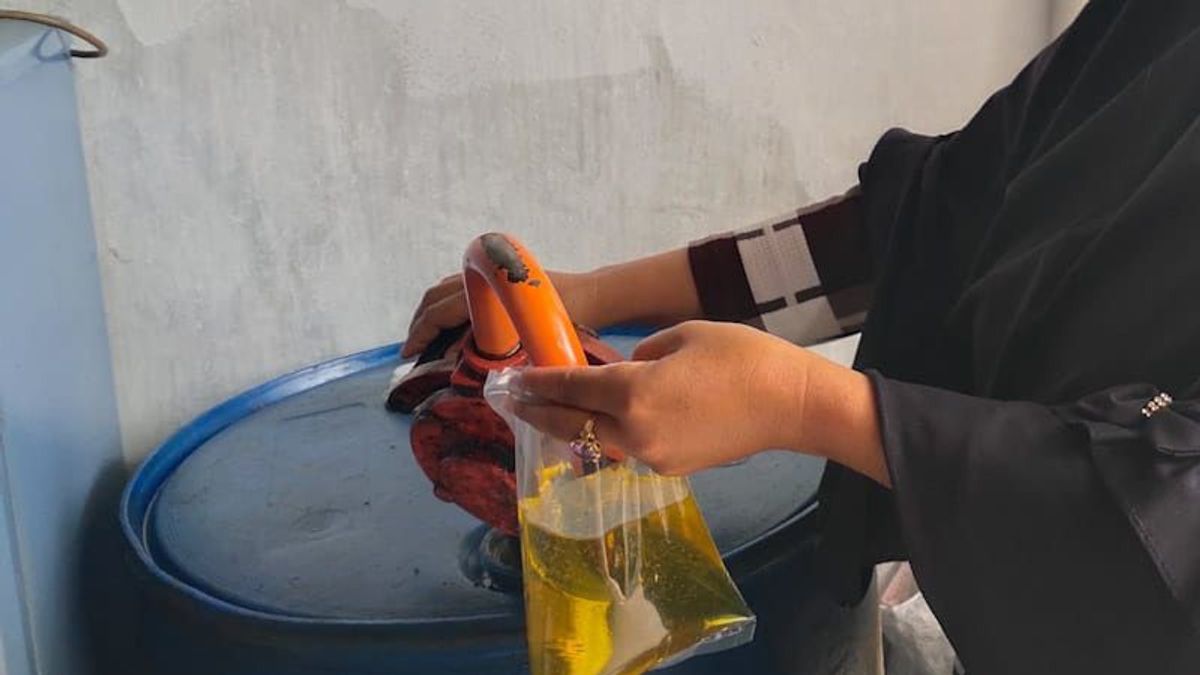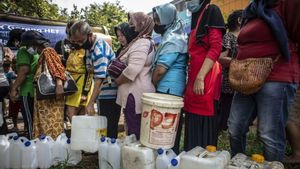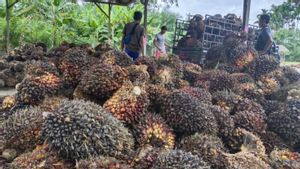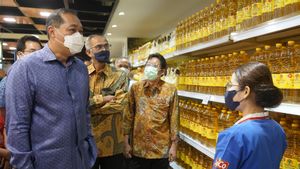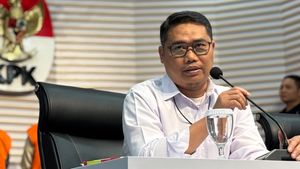JAKARTA - The government through the authority of the Ministry of Trade does not yet have the ultimate move that can withstand the turbulence of cooking oil prices. This can be seen from the unloading of policies in a short time.
In detail, the government has set three policies to overcome the shortage of supply and the high price of cooking oil in the market. First, the government sets the Highest Retail Price (HET) for bulk cooking oil of IDR 14,000. Second, the government returns the price of packaged cooking oil to its economic value. Third, the government will provide subsidies for bulk cooking oil from the Palm Oil Plantation Fund Management Agency (BPDPKS).
The two policies are further steps by the government, after deciding to subsidize bulk cooking oil using funds from the Palm Oil Plantation Fund Management Agency (BPDPKS). With this step, the government is considered to have lost in the face of the market and large corporations.
Looking at the price of cooking oil, which is still difficult to control, it seems likely that policy disassembly will still occur. The public assumes that the government does not see the existing reality, only based on trial and error.

Market players, cooking oil manufacturers, traders, distributors, modern retailers, traditional market players, retail traders to consumers, especially small food vendors, are still overshadowed by high prices. Can prices be suppressed like government policy? Is it possible to form a new price balance for cooking oil? This week or next month we don't know a definite answer. It is possible that the unloading of policies will still occur.
Cooking oil prices only fell slightly, in line with the ups and downs of policies. This happened because the HET determination was not accompanied by adequate additional supply, so the selling price remained at a high level. It could be that traders are still selling at the old price because the stock at the old price has not run out.
In a working meeting of the Commission VI of the House of Representatives (DPR) with the Ministry of Trade which was held on a hybrid basis in Jakarta, Thursday, March 17, which was attended by the Minister of Trade Muhammad Lutfi and Deputy Minister of Trade Jerry Sambuaga. Lutfi explained, in addition to the provision regarding the highest retail price for packaged cooking oil, the government revoked the policy on the obligation to supply domestic market needs or the DMO for crude palm oil and olein.
The government also increased levies on exports of crude palm oil and its derivatives. This is to increase the palm oil managed fund, which will be used to subsidize bulk cooking oil.
According to Lutfi, the DMO policy is actually going well because around 720,612 tons of CPO and olein have been collected. Of that amount, about 76.4 percent or 551,069 tons of CPO and olein or the equivalent of 570 million liters of cooking oil have been distributed. As a result, the average price of packaged cooking oil fell 18.9 percent from IDR 20,797 liters in January 2022 to IDR 16,965 per liter in March 2022, while bulk cooking oil fell 10.1 percent from IDR 17,726 per liter to IDR 15,583 per liter.
“The government revoked the policy because there was a high disparity between world and domestic CPO prices due to the impact of the Russia-Ukraine conflict. In addition, there are also indications of mafia practices that hinder the distribution of cooking oil to the public," he said.

While related to bulk cooking oil subsidies, Lutfi guarantees that the funds from BPDPKS will be sufficient. The government has decided to raise the upper limit on the export levy on CPO and its derivative products from the original 1,000 US dollars per tonne to 1,500 US dollars per tonne. Currently, the government is also making regulations to be immediately promulgated and published.
A number of members of Commission VI of the DPR assessed that the Ministry of Trade failed to intervene in the domestic cooking oil market, and did not take firm action against large corporations that control the market and cooking oil prices.
Member of Commission VI DPR, Mufti Anam, believes that the Ministry of Trade is like a toothless tiger, especially in the presence of cooking oil producers. Since January 2022, there have been six regulations issued, but none of them have positive implications for people's welfare and are unable to solve the cooking oil problem.
"The Ministry of Trade has failed to protect the people from rising cooking oil prices and has been unable to take action against corporations suspected of price-playing," he said.
YLKI Suggests Tightening of Surveillance
Meanwhile, in a press release, the Indonesian Consumers Foundation (YLKI) through the Head of the Daily Management, Tulus Abadi said, the new policy initiated by the government on paper is more market-friendly. So far, the government's intervention against the market has proven to be a total failure, instead causing chaos in the community.
The new policy is expected to improve the distribution and supply of cooking oil to the public at an affordable price. However, from a public policy perspective, YLKI deeply regrets the dismantling of the cooking oil policy.
"The policy seems to be trial and error so that consumers become victims," he said.

For subsidized bulk cooking oil, YLKI asked the government to tighten supervision over its distribution. This action is to prevent groups of consumers of simple and premium packaged cooking oil from taking the rights of lower-middle consumers by buying, let alone buying up subsidized bulk cooking oil, which is much cheaper.
A good policy is determined by the government's ability to diagnose the causes of price increases. Commodity markets, including cooking oil, are quite sensitive. This is because CPO is not only dominant to meet the needs of the stomach, but is also used to drive machines by being processed into fuel.
SEE ALSO:
The English, Chinese, Japanese, Arabic, and French versions are automatically generated by the AI. So there may still be inaccuracies in translating, please always see Indonesian as our main language. (system supported by DigitalSiber.id)
